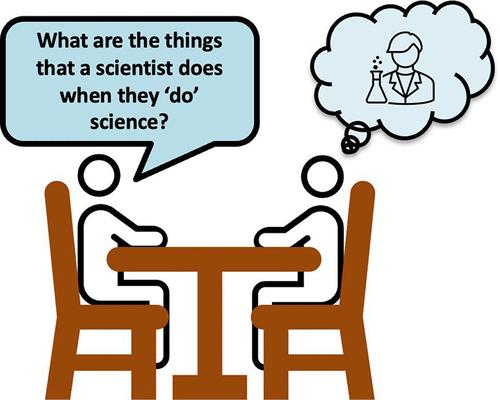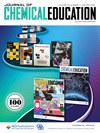高等教育化学专业学生对科学家工作认知的定性调查
IF 2.5
3区 教育学
Q2 CHEMISTRY, MULTIDISCIPLINARY
引用次数: 0
摘要
了解科学家是如何构建知识和理解自然世界的(即科学实践),不仅对从事科学领 域职业的人,而且对所有社会成员都至关重要。这种理解使人们有能力在科技问题上做出更明智的决定,并减少对伪科学主张或科学数据误导性陈述的易感性,从而减少对科学的否定。有鉴于此,当前的教育改革旨在更好地促进所有学生在科学课堂和教学实验室中理解和使用科学实践。除了这些正规的教学环境之外,本科生和研究生阶段的化学学生还有机会参与真实的研究经历,作为学生真正参与科学家实践的平台。这项定性研究通过对参与传统研究经历的化学本科生(5 人)和研究生(14 人)进行半结构式访谈,调查他们对科学家为创造新知识而开展的活动的看法。分析确定了学生描述的 15 项独特活动,并划分出与他们对科学探究的看法有关的三个主题:(1) 做科学意味着做实验;(2) 科学是一个线性过程;(3) 科学家和研究人员从事不同的活动/实践。这些发现与以往有关化学学生对科学探究的概念的研究结果一致,并提醒我们需要进一步提供支持,帮助学生完善他们对科学家工作的认识。本文章由计算机程序翻译,如有差异,请以英文原文为准。

A Qualitative Investigation of Higher Education Chemistry Students’ Perceptions of What Scientists Do
An understanding of how scientists construct knowledge and make sense of the natural world (i.e., science practices) is critical not just to those with careers in the science field but for all members of society. Such understanding empowers people to make more informed decisions about science and technology issues and reduce susceptibility to pseudoscientific claims or misleading presentation of scientific data that can result in science denial. Considering this, current educational reforms aim to better facilitate all students’ understanding and use of scientific practices within science classrooms and teaching laboratories. Beyond these formal teaching environments, chemistry students at the undergraduate and graduate levels have opportunities to engage in authentic research experiences that serve as a platform for students to genuinely engage with the practices of scientists. This qualitative study used semistructured interviews of chemistry undergraduate (n = 5) and graduate (n = 14) students involved in traditional research experiences to investigate their perceptions regarding the activities that scientists undertake to generate new knowledge. The analysis identified 15 unique activities described by the students and delineated three themes related to their perceptions of scientific inquiry: (1) doing science means performing an experiment, (2) science as a linear process, and (3) scientists and researchers engage in distinct activities/practices. These findings align with previous research of chemistry students’ conceptions of scientific inquiry and call attention to the need for further support in helping students refine their perceptions of what scientists do.
求助全文
通过发布文献求助,成功后即可免费获取论文全文。
去求助
来源期刊

Journal of Chemical Education
化学-化学综合
CiteScore
5.60
自引率
50.00%
发文量
465
审稿时长
6.5 months
期刊介绍:
The Journal of Chemical Education is the official journal of the Division of Chemical Education of the American Chemical Society, co-published with the American Chemical Society Publications Division. Launched in 1924, the Journal of Chemical Education is the world’s premier chemical education journal. The Journal publishes peer-reviewed articles and related information as a resource to those in the field of chemical education and to those institutions that serve them. JCE typically addresses chemical content, activities, laboratory experiments, instructional methods, and pedagogies. The Journal serves as a means of communication among people across the world who are interested in the teaching and learning of chemistry. This includes instructors of chemistry from middle school through graduate school, professional staff who support these teaching activities, as well as some scientists in commerce, industry, and government.
 求助内容:
求助内容: 应助结果提醒方式:
应助结果提醒方式:


